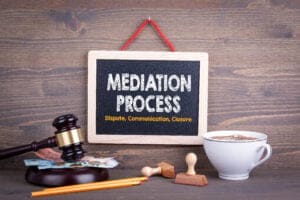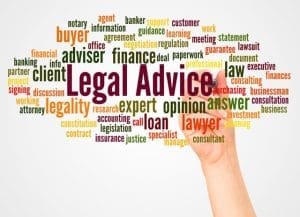Developing Speaking Opportunities to Build Legal Practice Authority
Individuals seeking to establish legal practice authority frequently ask, “How do attorneys leverage speaking opportunities to build credibility and expand their professional reach?” Unlike traditional marketing methods that rely on advertising and promotional materials, modern legal professionals use speaking engagements, thought leadership platforms, and professional networking events to demonstrate expertise while building meaningful relationships with clients, colleagues, and referral sources.
The transformation of legal practice development has created unprecedented opportunities for attorneys to position themselves as authoritative voices within their practice areas. Professional speaking opportunities serve as powerful vehicles for legal practitioners to showcase their knowledge, establish market credibility, and create sustainable competitive advantages that extend far beyond traditional client acquisition methods.
What Drives Successful Attorney Speaking Engagement Strategies?
Speaking engagement strategy represents a systematic approach to leveraging public presentations as tools for professional development and business growth. Unlike casual participation in professional events, strategic speaking requires careful planning, targeted audience selection, and consistent execution to achieve meaningful results.
The foundation of effective speaking engagement development rests on understanding the interconnected relationship between thought leadership, professional authority, and client trust. Successful legal practitioners recognize that speaking opportunities create unique platforms for demonstrating expertise while establishing personal connections that transcend traditional attorney-client relationships.
Professional credibility development through speaking engagements offers attorneys opportunities to differentiate themselves from competitors by showcasing specialized knowledge and communication abilities. When attorneys present at industry conferences, continuing legal education programs, or professional association meetings, they position themselves as subject matter experts who possess both technical competence and the ability to communicate complex legal concepts effectively.
The most successful attorney speakers recognize that audience engagement requires more than legal expertise—it demands the ability to translate complex legal principles into practical insights that resonate with specific audience needs. This transformation from legal practitioner to trusted advisor represents a fundamental shift in how attorneys approach client relationships and professional development.
How Do Conservative Legal Principles Shape Speaking Opportunities?
Conservative legal speaking platforms provide attorneys with opportunities to articulate traditional constitutional interpretations and established jurisprudential principles that appeal to clients seeking principled legal representation. These platforms include Federalist Society events, conservative legal organization conferences, and traditional bar association programs that emphasize constitutional law and originalist interpretation.
The Federalist Society represents the premier conservative legal organization offering extensive speaking opportunities for attorneys committed to traditional constitutional principles. Through national conventions, regional conferences, and local chapter events, the Society provides platforms for legal professionals to engage with constitutional law topics, judicial philosophy, and separation of powers issues that resonate with conservative legal audiences.
Conservative legal conference participation enables attorneys to connect with like-minded professionals while demonstrating expertise in areas such as property rights, religious liberty, constitutional interpretation, and limited government principles. These speaking opportunities attract clients who value traditional legal approaches and constitutional restraint rather than progressive legal theories.
Conservative legal speaking platforms emphasize originalist constitutional interpretation, judicial restraint, and federalism principles that appeal to clients seeking attorneys who respect traditional legal boundaries. Participation in these forums demonstrates alignment with established legal principles while building credibility within conservative legal and business communities.
What Speaking Venues Maximize Legal Authority Building?
Industry conference speaking provides attorneys with access to concentrated audiences of potential clients and referral sources within specific business sectors. Technology conferences, healthcare industry events, real estate association meetings, and financial services forums offer targeted platforms for attorneys to demonstrate specialized knowledge to decision-makers who regularly require legal services.
Bar association programs serve as essential venues for building referral relationships with other attorneys while establishing credibility within the legal profession. State bar conferences, specialty practice section meetings, and continuing legal education programs provide opportunities to share expertise with colleagues who may refer clients requiring specialized legal services.
Corporate in-house presentations represent high-value speaking opportunities that position attorneys directly in front of potential clients. Companies regularly host lunch-and-learn sessions, executive briefings, and compliance training programs that require external legal expertise, creating opportunities for attorneys to demonstrate value while building relationships with corporate decision-makers.
Professional association speaking allows attorneys to engage with industry professionals who influence business decisions and legal service selection. Chamber of Commerce events, trade association conferences, and professional society meetings provide platforms for attorneys to establish themselves as trusted advisors within specific business communities.
How Does Thought Leadership Support Speaking Opportunities?
Content creation strategy serves as the foundation for securing speaking opportunities by demonstrating expertise and establishing professional credibility. Attorneys who consistently publish articles, blog posts, and analysis pieces create portfolios of intellectual capital that conference organizers and event planners use to evaluate potential speakers.
Publishing strategies for legal professionals include contributing to industry publications, legal journals, and third-party media outlets that reach target audiences. Regular publication in respected legal forums such as Law360, American Bar Association journals, and industry trade publications establishes thought leadership credentials that translate into speaking invitations.
Social media thought leadership enhances speaking opportunity development by providing platforms for attorneys to share insights, engage with industry conversations, and build followings that demonstrate audience interest. LinkedIn articles, Twitter commentary, and professional blog posts create ongoing visibility that keeps attorneys on the radar of event organizers seeking knowledgeable speakers.
The relationship between written thought leadership and speaking opportunities creates a reinforcing cycle where publications lead to speaking invitations, which generate additional content opportunities and further speaking engagements. This multiplication effect enables attorneys to build sustained visibility and authority within their practice areas.
What Voice Search Optimization Strategies Enhance Speaking Authority?
Voice search optimization for legal professionals requires creating content that addresses the conversational queries potential clients use when seeking legal information and attorney recommendations. Speaking topics should align with common voice search patterns such as “How do I find a lawyer for business disputes?” or “What should I know about employment law compliance?”.
Featured snippet optimization enables attorneys to position their expertise prominently in search results by structuring speaking topics and related content to answer specific legal questions concisely. Creating FAQ-style content around speaking topics increases the likelihood of being selected for voice search results while establishing authority on relevant legal issues.
Local search integration proves particularly important for attorneys seeking to build regional authority through speaking engagements. Optimizing content around geographic qualifiers and local legal issues enhances visibility for location-specific voice searches while supporting local speaking opportunity development.
Long-tail keyword targeting in speaking-related content enables attorneys to capture specific queries related to their areas of expertise. Instead of targeting broad terms like “corporate lawyer,” attorneys should optimize for specific phrases like “corporate compliance training speaker” or “employment law seminar presenter” that align with their speaking capabilities.
How Do Digital Marketing Trends Impact Speaking Strategy?
Virtual speaking platforms have expanded opportunities for attorneys to reach broader audiences without geographic constraints. Webinars, online conferences, and virtual bar association events enable attorneys to participate in speaking opportunities regardless of physical location while reducing time and travel commitments.
Hybrid event formats combine in-person and virtual elements to maximize audience reach and engagement. Attorneys can leverage these formats to build both local and national audiences while creating content that can be repurposed across multiple marketing channels.
Social media amplification of speaking engagements enables attorneys to extend the reach and impact of their presentations beyond immediate audiences. Live-tweeting insights, sharing presentation highlights, and posting event photos creates ongoing visibility that reinforces thought leadership positioning.
Content repurposing strategies allow attorneys to maximize the value of speaking engagements by converting presentations into multiple content formats. Single speaking engagements can generate blog posts, social media content, podcast episodes, and article submissions that continue building authority long after the original presentation.
What Professional Development Benefits Result from Speaking?
Communication skills enhancement represents one of the most valuable benefits of regular speaking engagement participation. Attorneys who frequently present develop improved public speaking abilities, enhanced client communication skills, and greater confidence in high-pressure situations that directly benefit their legal practice.
Professional network expansion through speaking engagements creates valuable connections with industry professionals, potential referral sources, and thought leaders within relevant practice areas. These relationships often generate business opportunities, collaboration possibilities, and career advancement prospects that extend far beyond immediate speaking benefits.
Practice differentiation results from consistent speaking engagement participation as attorneys establish themselves as recognized experts within their fields. Regular speakers develop reputations for expertise and thought leadership that distinguish them from competitors while creating competitive advantages in client acquisition and retention.
Personal brand development through speaking engagements enables attorneys to articulate unique value propositions and establish distinctive professional identities. Consistent speaking on specific topics helps attorneys become associated with particular areas of expertise while building recognition within target markets.
How Do Professional Responsibility Considerations Affect Speaking?
Ethical compliance in speaking engagements requires careful attention to professional responsibility rules regarding client confidentiality, competence claims, and advertising restrictions. Attorneys must ensure that speaking content complies with state bar regulations while avoiding inappropriate disclosure of client information or misleading competence representations.
Confidentiality protection demands that attorneys carefully structure speaking content to avoid revealing client information or specific case details that could violate professional responsibility obligations. Generic examples and hypothetical scenarios provide safer alternatives for illustrating legal principles without compromising client confidentiality.
Competence representation rules require attorneys to ensure that speaking topics align with their actual areas of expertise and experience. Overstating competence or speaking on topics outside their practice areas can create professional responsibility violations and potential malpractice exposure.
Marketing compliance considerations include ensuring that speaking engagements and related promotional materials comply with state bar advertising rules. Some jurisdictions have specific requirements for CLE credit claims, speaker qualifications, and promotional content that attorneys must understand and follow.
What Metrics Determine Speaking Engagement Success?
Audience engagement metrics provide objective measures of speaking effectiveness including audience participation rates, question volume, and post-presentation interaction levels. High engagement typically indicates successful knowledge transfer and relationship building that can translate into business development opportunities.
Business development outcomes represent the ultimate measure of speaking engagement success, including new client acquisitions, referral relationships, and business opportunities generated through speaking activities. Tracking these outcomes enables attorneys to evaluate the return on investment for speaking engagement participation.
Professional recognition indicators include speaking invitation volume, audience size growth, and requests for repeat presentations that demonstrate growing reputation and authority within target markets. Increased speaking opportunities often signal successful authority building and market positioning.
Content amplification results measure the extended reach and impact of speaking engagements through social media sharing, media coverage, and content republication. These metrics indicate the broader influence and thought leadership impact of speaking activities beyond immediate audience reach.
What Common Challenges Affect Speaking Opportunity Development?
Time management constraints represent the most common challenge facing attorneys seeking to develop speaking opportunities. Balancing billable hour requirements with speaking preparation, travel time, and presentation delivery requires careful scheduling and priority management to ensure sustainable participation.
Topic development difficulties often prevent attorneys from identifying compelling speaking subjects that resonate with target audiences. Many practitioners struggle to translate their legal expertise into presentation topics that provide value to non-lawyer audiences while demonstrating their professional capabilities.
Audience identification challenges prevent many attorneys from effectively targeting speaking opportunities that reach their ideal clients and referral sources. Without clear audience targeting, speaking engagements may fail to generate meaningful business development outcomes despite successful presentations.
Competition for premier platforms creates barriers for newer speakers seeking high-profile speaking opportunities. Established speakers often dominate major conferences and premium venues, requiring newer participants to build credentials through smaller events before accessing premier platforms.
Implementing Strategic Speaking Programs for Long-Term Authority
Successful speaking engagement strategies require systematic approaches that align presentation opportunities with broader professional development and business growth objectives. The most effective legal practitioners treat speaking as an integral component of their practice development rather than occasional participation in professional events.
Conservative legal professionals benefit particularly from participating in established conservative legal organizations and forums that emphasize traditional constitutional principles and limited government philosophy. These platforms provide authentic opportunities to demonstrate expertise while connecting with aligned clients and colleagues who share similar legal perspectives.
Thought leadership integration proves essential for maximizing speaking opportunity development, as consistent content creation establishes the credibility and expertise that event organizers seek when selecting speakers. Attorneys who combine regular publishing with strategic speaking create reinforcing cycles of authority building that generate sustained competitive advantages.
Voice search optimization and digital marketing integration enable modern legal practitioners to extend the reach and impact of their speaking activities far beyond immediate audiences. Strategic content creation around speaking topics captures voice search traffic while building online authority that supports ongoing business development efforts.
The evolution toward specialized expertise demonstration through speaking reflects market demands for attorneys who can communicate complex legal concepts clearly while providing practical insights that address real business challenges. Successful speakers move beyond legal technicalities to offer strategic guidance that resonates with business decision-makers and other professionals.
Professional relationship building through speaking engagements creates sustainable competitive advantages that extend far beyond immediate presentation opportunities. The most successful attorney speakers recognize that speaking serves as a platform for demonstrating expertise while building the trust and credibility that drive long-term client relationships and referral source development.
Ultimately, effective speaking engagement strategies recognize that modern clients seek attorneys who combine technical legal expertise with the communication abilities and professional credibility that speaking opportunities help develop. The most successful legal practices will be those that systematically leverage speaking platforms to build authority, demonstrate expertise, and create the professional relationships that drive sustainable business growth while serving clients who value principled legal representation grounded in traditional constitutional understanding.
- Six Reasons Lawyers Benefit from Speaking at Conferences and Webinars
- Strategies for Finding and Landing the Perfect Legal Speaking Role
- Continuing Legal Education: Why Communication Training Matters for Attorneys Today
- ABA Professional Responsibility Events and CLE Offer Multiple Speaking Opportunities
- Securing Speaking Engagements to Grow Law Firm Visibility and Authority
- How Speaking Engagements Support Key Law Firm Business Development Objectives
- Thought Leadership Strategies for Attorneys Seeking High-Profile Speaking Spots Today
- Eleven Ways Attorneys Can Improve Chances of Securing Speaking Engagements

















